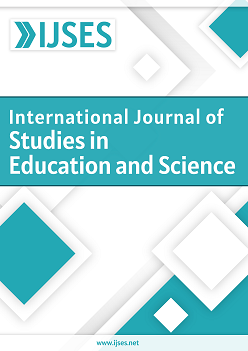Effect of Anchoring Vignettes on Reliability and Validity as a Measure of Motivation and Emotion in Mathematics
DOI:
https://doi.org/10.46328/ijses.113Keywords:
Anchoring vignette, Composite reliability, Convergent validity, Discriminant validityAbstract
In mathematics, the importance of emotion and motivation has long been appreciated. Meanwhile, the measurement of these constructs needs to be carefully developed. Indeed, many previous studies employed questionnaires and self-rating to investigate emotion and motivation in mathematics. However, researchers stressed that self-rating and questionnaires are vulnerable to different biases, such as cultural bias, social desirability bias, and individual reporting behavior, which could influence the reliability and validity of the responses. The present study employed an anchoring vignette approach and self-rating to measure emotion and motivation to examine its effect on reliability and validity. The study sample consisted of 308 Grade 8 students from urban, suburban, and rural schools in Mongolia. The students were administered two vignette sets and their respective self-rating items in 45 minutes. The study found that the anchoring vignette approach increased two types of reliability coefficients, including composite reliability and Cronbach's α, and two types of validity, such as convergent and discriminant validity. In sum, the results of the present study concluded that the anchoring vignette approach has the potential to improve the reliability and validity of tools to measure emotion and motivation in mathematics.References
Otgonbaatar, K. & Miyejav, I. (2024). Effect of anchoring vignettes on reliability and validity as a measure of motivation and emotion in mathematics. International Journal of Studies in Education and Science (IJSES), 5(4), 477-489. https://doi.org/10.46328/ijses.113
Downloads
Published
Issue
Section
License
Articles may be used for research, teaching, and private study purposes. Authors alone are responsible for the contents of their articles. The journal owns the copyright of the articles. The publisher shall not be liable for any loss, actions, claims, proceedings, demand, or costs or damages whatsoever or howsoever caused arising directly or indirectly in connection with or arising out of the use of the research material.
The author(s) of a manuscript agree that if the manuscript is accepted for publication in the International Journal of Studies in Education and Science (IJSES), the published article will be copyrighted using a Creative Commons “Attribution 4.0 International” license. This license allows others to freely copy, distribute, and display the copyrighted work, and derivative works based upon it, under certain specified conditions.
Authors are responsible for obtaining written permission to include any images or artwork for which they do not hold copyright in their articles, or to adapt any such images or artwork for inclusion in their articles. The copyright holder must be made explicitly aware that the image(s) or artwork will be made freely available online as part of the article under a Creative Commons “Attribution 4.0 International” license.

This work is licensed under a Creative Commons Attribution-NonCommercial-ShareAlike 4.0 International License.





